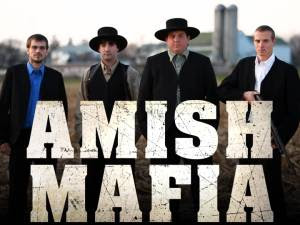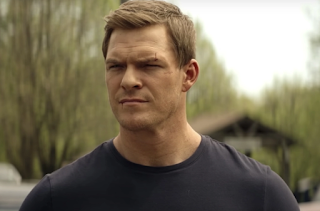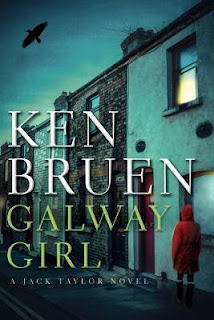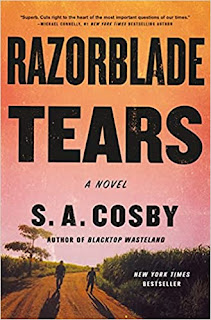Hey, all. Jim here. On my blog, I have a feature called Get Into Jim's Shorts, where I run a new short story every month. This being Christmas, I went with a seasonal theme. As an early present, I'm going to share this month's story here as well. So without further ado…
SUNNY ACRES CHRISTMAS
Frank knew
he had exactly four hours to clean out Sunny Acres Trailer Park on Christmas
Eve. He figured an hour for people to grab dinner and make their way to
Willowbrook Methodist Church, an hour for the first act of the annual Christmas
pageant, half an hour for intermission (cake and punch in the church basement
during a meet-in-greet with Joseph, Mary, and the Angel of the Lord), one hour
for the second act, and half an hour before the faithful returned home. In the
meantime, his name was not Frank.
He was
Santa Claus. The idea came from seeing Jim Carrey in How the Grinch Stole Christmas a couple of weeks earlier. Only
Frank’s idea was better. The Grinch had a dog. Frank had a 1998 Crown Victoria
with a huge trunk and only minor engine problems.
The job, of
course, could not begin until Amon Yoder, the police chief, left with his wife
and kids piled up in their aging minivan. On Christmas Eve, the Willowbrook
Police Department shut down, leaving the Sheriff’s Department to patrol the
town. That meant the deputy who drew the short straw would park his cruiser
downtown and keep an eye on the storefronts until about midnight, when his
overnight relief would simply make a few passes on their way through town. But
until Yoder and his family drove out to the Cracker Barrel on Route 20, Frank
had to stay hunched down out of sight, eyes peering through the steering wheel
with endless Christmas music playing on WJLB.
By 6 PM, half
the trailer park had emptied. The other half – the heathen half, Frank had come
to call them – were getting blissfully drunk on Big Muskie beer and watching
whatever movies they’d seen a dozen times before on Christmas Eves past. No one
would notice Frank trudging about Sunny Acres in the dark.
They would
notice Santa.
To Frank’s
surprise, the Santa suit did not keep him warm. Willowbrook, along with the
rest of Musgrave County, lay under two feet of snow. While Sunny Acres did a
good job plowing and salting the lot, it did not keep Frank from freezing his
nuts off in the get-up. No worries. He planned to knock off about ten trailers,
all double-wides, before the Virgin Mary gave birth over at the Methodist
church.
He picked
the locks easily enough. Had it not been for a four-year stretch in Mansfield,
he might have made a decent living as a locksmith. More than one cop had given
him a pass if he promised to use his powers for good instead of evil, but one
day, that luck ran out.
“Yeah,”
said Frank, muttering as he worked a particularly stubborn lock, “you try to
make a good living without that badge, motherfuckers. Fucking Nissan moving,
switching their brake supplier to Mexico.”
As the door
swung open, he stepped inside, turned on the lights, and bellowed “Ho! Ho! Ho!”
in as deep a voice as he could muster. He’d been practicing all week as a
shopping mall Santa in Milan since Thanksgiving. When no one responded “Who’s
there?”, he opened his sack, swept as many of the presents from under the tree
as could fit, and headed back out, locking the door behind him. Frank, after
all, was a thief, not an asshole.
On his
third house, he almost did not get the door locked. Whoever lived there kept a
huge Doberman. In the dark, the dobie looked like a beast from Hell. As he ran
from the double-wide, the dog still barking loud enough for anyone in the
neighboring trailers to hear, he wondered what idiot kept a dog that big in a
home that small?
He moved
onto the fourth trailer, a single-wide going to seed in this otherwise neatly
kept trailer park. The old lady who lived here was the church organist. He knew
her husband had left her a bundle, which she stretched by living in a dump like
this. Nonetheless, she had lots of grandchildren who would want lots of presents.
Frank could pawn those presents for hundreds if he were discreet enough. He
filled his sack, locked the door, and headed back to the Crown Vic across the
road. Six more trailers, he told himself. Empty the sack, hit six more
trailers, and he could go have a beer at Mort’s out on Ashland Pike.
As he
trudged back out of the park, his feet freezing, he heard a small voice call
out to him. “Hi, Santa!”
The girl,
no more than six, wore pink feetie pajamas and had her blonde hair in pig
tails. She stood on the tiny porch of her family’s single-wide under a naked
bulb.
Frank
slowly raised his hand. “Uh… Hi?”
“Whatchu
doin’, Santa?”
“Um…” He
realized he needed to go into Santa mode or this kid would think something was
wrong. “Ho! Ho! Ho! I’m taking these presents out to the sleigh to be
inspected. Ho! Ho! Ho!”
The little
girl jumped up and down, clapping her hands. “Is Rudolph out there?”
“Why, no,
little girl. Rudolph retired. He trains the newer reindeer now.” He’d made that
story up on the spot one Saturday as some brat sat in his lap telling him
Rudolph wasn’t real. “What’s your name, little girl?”
“Taylor,”
she said. “Taylor Mills. You know that, Santa.”
“Well, I
don’t have my crystal ball with me.”
“Crystal
ball?”
“How do you
think I see you when you’re sleeping and know when you’re awake? Ho! Ho! Ho!”
He needed to get this kid back in the house or three trailers would be all he
hit tonight. The dog had already cost him one place. “You should be inside,
Taylor. It’s coooooolllllld out here.
Ho! Ho! Ho!”
“Taylor,”
said a woman from inside the trailer, “what are you doing out there?”
“I’m
talking to Santa!”
“Well, come
in the house. You’ll catch pneumonia out there.”
You ain’t kidding, lady, Frank thought.
“Well, Taylor, you head off to bed, and I’ll be back later with your presents.
But remember, you have to be asleep. Ho! Ho! Ho!”
Taylor ran
back into the trailer, slamming the door behind her. “Mommy! I saw Santa!”
Frank
hurried across the street to his car. He still had a lot of work to do.
Popping the
trunk of the Crown Vic, he dumped his latest haul inside. Slamming it shut, he
patted the deck lid and said, “Thanks, Donner.”
Dashing
back across the road, he made a bee line toward the most expensive home in the
park. He had seen this one towed in halves through downtown Willowbrook. The
man who lived there was a church deacon, and his wife sang in the chorus. If he
could hit this one, he could count this as a good night. He wouldn’t have the
haul he wanted, but he’d have a respectable amount.
About
halfway back to the double-wide…
“Hey,
Santa!”
Frank
looked up. His heart sank when he saw an adult version of little Taylor Mills
standing on the same porch. She wore black yoga pants and a Cleveland Browns
jersey.
“Um…” Ho-ho-ho would not work, he knew. “Hi?”
“You
playing Santa for the neighbors tonight?” she asked, cradling a mug in her
hands.
“Yeah,”
said Frank. “Just picking up a few bucks and doing something nice for the
kids.”
“That’s sweet,”
she said. “I’m Denise. Denise Mills. You talked to my daughter earlier.”
Okay, lady, I talked to your kid. Ho ho ho.
Tell her Santa will be back later. “My pleasure.”
“Listen,”
she said, “it’s just me and Taylor tonight. Her daddy’s gone.”
“He left?”
“Afghanistan.
His chopper went down in the mountains six months ago.”
Oh, boy. “That’s rough, Mrs. Mills.”
“Please.
Denise. Look, could I ask you to come in for a few minutes and give my daughter
a special visit from Santa? It’d mean a lot. I could give you some hot
chocolate with something a little extra in it.” She made a drinking motion with
one hand, then mimicked pouring something into her own hot chocolate.
Well, it
was freezing tonight. He wasn’t sure if he had much energy left to go beyond
the next trailer.
“Please?”
said Denise, her lips threatening to pout.
All Frank’s
defenses melted. “All right. One cup of cocoa. Is the girl still up?”
“Yes. Come
on in.”
Frank
climbed the steps and followed Denise into her single-wide. It was cramped like
any other single-wide trailer, but neatly kept. Places like this made Frank
think of a submarine, everything smaller and either stacked or recessed. Denise
dumped a packet of Swiss Miss into a mug and poured hot water onto it. She then
reached into the cupboard and produced a half-full bottle of peppermint
schnapps.
She held it
up with a playful smile. “Merry Christmas, Santa.”
“Well,
that’ll make for a warmer sleigh ride.” He accepted the mug as soon as she put
a shot of schnapps into it.
“Taylor,”
she hollered, “Santa’s here!”
For a six-year-old
girl, Taylor certainly thundered down the trailer’s narrow hallway like an
elephant charging. She stopped when she emerged into the kitchen. Seeing Frank
in his Santa suit, she barely gave him time to put down his hot chocolate
before she leapt into his lap. “Santa!”
“Well, ho
ho ho, Taylor,” said Frank, adopting his mall Santa voice. “Your mommy thought
I should pay you a visit since you’re all alone on Christmas Eve.”
Denise
raised her phone and snapped a picture of Taylor on Frank’s lap. “Her
grandmothers will love this.”
Frank said
a silent prayer of thanks that he’d done a reasonable job on his beard. “Well,”
he said in his best Santa voice, “maybe you could send a copy north for Mrs.
Claus.”
“Please,
mom,” said Taylor. “Please.”
“You just
want an edge over all the other boys and girls,” said Denise. “Listen, can you
watch her for a second? I gotta hit the little girls’ room.”
“Mommy’s
gotta tinkle!” Taylor giggled at her own joke as her mother blushed.
“Taylor
Anne Mills,” said Denise, “you behave in front of Santa.” That only made Taylor
laugh more loudly. “I’ll be right back.”
Brave woman, thought Frank. Unless she recognizes me from the mall. If
she does, I am royally screwed. “So, Taylor, have you been a good little
girl this year?”
“Don’t you
know, Santa?”
“Well, I
have my list that I check twice, but it’s in the sleigh.”
“Can I see
your sleigh?”
“Oh, I wish
I could show it to you.” Because that’s
what every little boy and girl wants to see, Santa tooling around in a 16-year-old
Ford. “But I have new reindeer this year, and they spook so easily.”
“What about
Rudolph?”
He had to
admit he was enjoying this, making up new pieces of the Santa myth on the
spot. “Ho ho ho, well, Rudolph’s been
with me a long, long time. He’s retired now and trains all the new reindeer.”
“Why does
he have a red nose?”
Vodka, thought Frank, who would need a
couple extra shots of the stuff when this was over. “Magic. Rudolph’s nose is
magic.”
“Magic?”
“How do you
think they fly and pull a sleigh behind them without it falling. Christmas is
magic, Taylor. Wonderful magic.” Wherein
an unemployed factory worker spirits your stuff away to fence after the New
Year. But let her figure that out when she grows up.
“The man on
the news said the North Pole might melt,” said Taylor. “What will you do then?”
“Why move
to Antarctica. Do you know where that is?” And
is your mommy pissing a whole two-liter back there?
“The South
Pole.”
“Yes. And
just like the North Pole, I can get to anywhere in the world from there. Only
the South Pole is on land.”
“Are there
reindeer?”
“I have
them brought in from Finland, which is waaaaay up north.”
The front
door opened and in walked a sheriff’s deputy. “Honey, I’m… Oh, hi. Who are
you?”
Frank tried
very hard not to crap his pants. Gently, he put Taylor down before standing.
“Why I’m Santa Claus! And who are you, Officer?”
“‘Deputy,’”
said the cop. His phone buzzed, and he looked down at it.
“Is it cold
out, Daddy?”
Daddy? Oh, shit. “Well, I must get
back to my sleigh,” said Frank, trying to make it to the door.
The deputy
blocked his path and had his hand on his weapon. He held up the phone, which
displayed a picture of Taylor on Santa’s lap. “Cute. You work out at the Edison
Plains Mall, don’t you?”
“Er…”
“And do you
drive a 1998 Crown Victoria with a primered fender and a bad set of rocker
panels?”
“Daddy,
what’s wrong?”
“That’s not
Santa, Taylor.”
Denise
emerged from the bathroom. “You got here quick.”
“Well,
someone called in about an abandoned car across the street, and someone else
said the Mrs. Perkins’s Doberman was going berserk. Then I got your text.” He
looked at Frank and said, “I’m going to assume that was you, wasn’t it?”
“Er…”
“What
happened to ‘Ho ho ho’?”
“I thought
you went down in Afghanistan.”
The deputy
smiled. “I did. They gave me a discharge as soon as they rescued me. Who told
you?”
“I never
said he was dead,” said Denise. “I just said he was gone and that he went down
in Afghanistan. He was gone; now he’s here.”
Frank looked
at the gun on the Deputy Mills’s hip. He could charge. He could grab the gun,
threaten his way out, and run for it. But then how far could he go running away
in a Santa suit that did not even warm him? He looked down at Taylor, who
looked confused. “So, Deputy, are my reindeer all right?”
Deputy
Mills hand now rested on his weapon. “Sir, I’m going to have to ask you to…”
“Because if
there’s a problem,” he continued, “we should go. I have some very special
presents for Taylor.” He winked at Mills. “So… Shall we go?”
Mills’s
hand relaxed on his gun. “I think Rudolph might have sprained his ankle landing
on one of the trailers.”
“Daddy!”
said Taylor. “Rudolph retired.”
Frank
needed a story fast, or both he and Taylor’s Christmas would be ruined. “I believe
you mean his son. Adolf. Ho, ho, ho.”
“Um… Yeah.
Adolf. Anyway, he looks like he hurt himself. Could you come with me?” Deputy
Mills had his hand his gun once more and gestured for the front door. “Shall
we?”
Frank
turned and knelt before Taylor. “No matter what happens, Taylor, you be a good
girl. Listen to your parents. And have a merry Christmas.”
Taylor
threw her arms around his neck and kissed him. “Bye, Santa!”
Frank got
up and said, “Let’s go, Deputy. I’ve got a lot of houses to visit tonight.”
“Including the
big one in Norwalk,” said Mills with a smirk. To Denise, he said, “I’ll be off
about three, maybe sooner since I’ll just have to do paperwork on…” He looked
over at Frank. “…Adolf the Red-Nosed Reindeer.”
“Be
careful, honey. Try not to hit any reindeer out there.”
Outside
Frank gave one last “Ho! Ho! Ho!” for Taylor’s benefit, then held out his
wrists. “Let’s get this overwith before your daughter realizes I’m the mall
Santa.”
“Save it,”
said Mills. “You could have run, you know. Told my wife you were busy, hopped
in your car, and made off with your take. Why’d you do it?”
“Why does a
burglar ever…?”
“I mean my
daughter. Why did you come in to talk to her? You know you blew your cover the
moment my wife invited you in for hot chocolate.”
Frank
thought about his own childhood. He remembered that scene from The Breakfast Club where Judd Nelson
rants about getting a carton of cigarettes for Christmas. That was his
childhood. Broken toys from Goodwill when he was a child, cartons of Camels
from the age of 12 onward. Things did improve when Frank got his driver’s
license. His old man would give him whiskey.
“I’ve never
had a good Christmas,” said Frank as he got into Mills’s cruiser. “And this
Christmas, I’m going to jail. At least your daughter would have a happy
memory.”
Mills shut
the door on him. Climbing in the front of the cruiser, he said, “Well, ‘Santa,’
I thank you for that. Seems you did some good tonight after all.”
As they
pulled out of Sunny Acres, Frank saw the tow truck backed up to his Crown Vic,
another Sheriff’s Department cruiser parked alongside.
He began to
cry.
























